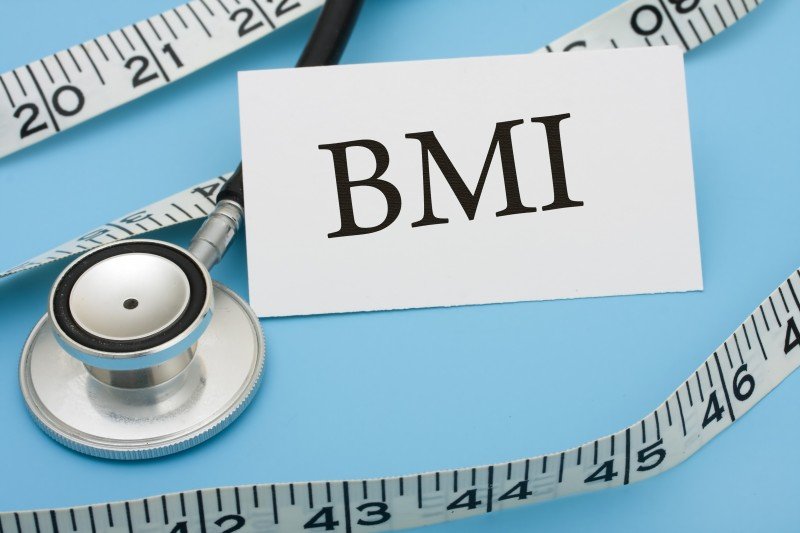What is BMI and why should you know about it?
Body mass index (also known as BMI) is a term developed and introduced into practice by Lambert Adolphe Jacques Quetelet, a Belgian statistician and sociologist, almost 150 years ago. The index allows estimating the level of weight to height correspondence and serves as generally accepted, reliable and simple tool for determining whether a person has normal mass or suffers from excessive/insufficient weight. BMI is calculated by a simple formula: I = m h2, where «m» stands for mass and «h» means height. Mass can be measured either in kg or lb while height is measured in cm, in or ft. Universally the results of calculations are given in kg/m².
The figures obtained by calculation should be interpreted in accordance with the statistical categories developed by WHO which is used to determine whether a person needs treatment or not:
- BMI 16 and less is interpreted as severely underweight (deficit of body mass);
- 16-18,5 means underweight;
- 18,5-25 is considered to be healthy weight;
- 25-30 signifies overweight (excessive body mass)
- 30-35 means class I obesity (modarate);
- 35-40 is interpreted as class II obesity (severe);
- 40 and more stands for class III obesity (very severe).
Underweight – what to do?
Underweight is no less dangerous than notorious excessive body mass. In addition to pure aesthetic problems (like lifeless hair, brittle nails, pale and unhealthy skin or loss of pleasing body shape) underweight endangers all the vital functions of the body including endocrine, immune, hematopoietic, musculoskeletal and nervous systems functioning. A person with deficit of body mass loses endurance and can’t withstand physical activity that is normal for his age. Furthermore, you should bear in mind that underweight may be caused not only by unbalanced diet and excessive desire to lose weight but by nervous system disorders, various diseases of the gastrointestinal tract, endocrine and hormonal disorders, parasites or even tumors.
If deficit of body mass is caused by poor nutrition, take the following steps to gain healthy weight:
- Consume more calories than it is necessary on the average for a person of your age, weight, height and lifestyle. Take extra calories from carbohydrates, avoid junk food and complement your diet with physical activity to prevent gaining fat instead of muscle mass. Required minimum of carbohydrates should make up 50% of daily ration.
- Also daily you need to consume 2.5 g of protein per 1 kg of weight. Eat farmer cheese, sour cream, cream with a higher percentage of fat.
- Get enough sleep since it contributes to somatotropin production which affects muscle mass growth.
- Avoid bad habits like smoking and alcohol consumption as well as reduce the consumption of coffee and strong tea because of their negative impact on metabolism.
- Drink up to 3 liters of water.
- Give preference to power training.
- Stimulate appetite using fruit juice and herbs like cilantro, parsley, dill, basil, celery.
Overweight – how to stop it?
Excluding various diseases as reasons for overweight, we’ll find out that the problem is often caused by consumption of high-caloric food containing fat, salt and sugars in quantity but low in vitamins, minerals and other nutrients. The other common reason for overweight is lack of physical activity dictated by lifestyle. There is a clear way out:
- To limit calories taken from common fat. However, it is not recommended to reduce fat consumption less than 30% of daily ration since this usually increases consumption of fast-digesting carbohydrates in the form of sugar, sweets, honey.
- To eat more fruits and vegetables as well as legumes, whole grains and nuts.
- To replace fatty meats with fish and chicken.
- To practice «vegetable», «fruit», «protein», «rice» days.
- To limit sugars consumption.
- No snacks, no heavy late dinners, no bad habits.
- To use more spices such as anise, ginger, cardamom, coriander, cinnamon, turmeric, mustard seeds, cumin.
- To adhere to regular physical activity giving preference to aerobic exercises.
- To drink enough water but not during the meals but several hour after.
Obesity – what kind of treatment is needed?
Obesity of any class requires treatment as it leads to development of cardiovascular diseases, diabetes; violations of the musculoskeletal system, some types of cancer, sleep apnea, cholelithiasis, chronic venous insufficiency, menstrual disorders and infertility. Basic ways to treat obesity include:
- monthly reducing caloric value from usual by 500 kcal to achieve the figures 300-500 kcal lower than adequate energy demand. For persons who are not engaged in active physical labor, this figure makes up 1500-2000 kcal.
- dieting with a high content of fiber, vitamins and other biologically active ingredients (cereals and whole grains, vegetables, fruits, nuts, herbs, etc.);
- limiting the use of fast-digesting carbohydrates (sugar, sweets, pastries, bread and pasta from flour varieties);
- adequate physical activity.










